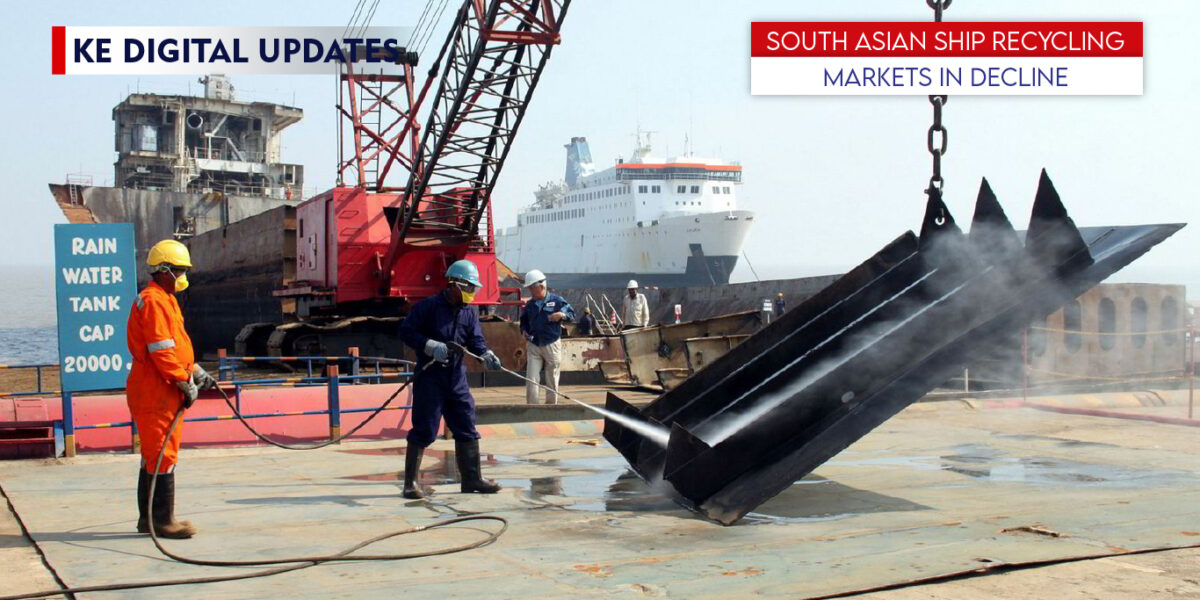Published on Oct 30, 2024
The ship recycling industry in South Asia, a crucial sector for the region’s economy, is currently facing significant challenges. The markets in India, Pakistan, and Bangladesh are experiencing a downturn due to declining steel prices, currency depreciation, and economic restrictions.
India: Alang’s Struggles Amid Declining Steel Prices
India’s ship recycling market, particularly in Alang, has been hit hard by a $ 13-ton drop in steel prices. This decline has strained profitability for local recyclers who rely heavily on the resale of steel extracted from decommissioned ships. Additionally, the depreciation of the Indian rupee has further exacerbated financial pressures. Despite these challenges, Alang remains the busiest port in the region, receiving 43,171 Light Displacement Tons (LDT) of ships for recycling. However, the economic strain is evident as recyclers struggle to maintain profitability in a market where costs are rising and revenues are falling.
Pakistan: Limited Activity and Economic Struggles
In Pakistan, the ship recycling market is facing even more severe challenges. The market activity has been minimal, with only one 22,000 LDT bulker purchased recently. The industry is grappling with the influx of cheap Chinese billets, which are undercutting local steel prices, and a weak Pakistani rupee, making imports more expensive. Gadani Port, once a bustling hub for ship recycling, has seen no new tonnage, highlighting the market’s struggles. These factors have led to a significant downturn in the industry, with local recyclers finding it increasingly difficult to compete and sustain operations.
Bangladesh: Economic Restrictions and Losses
Bangladesh’s ship recycling market is also in decline, primarily due to economic restrictions and a $7 per ton drop in steel prices. Chattogram, the main port for ship recycling, received 12,141 LDT of ships, but local recyclers are facing substantial losses. These losses stem from earlier purchases made at higher prices, which are now challenging to recoup in the current market conditions. The economic restrictions imposed by the government have further limited the ability of recyclers to operate profitably, adding to the industry’s financial woes.
Overall Impact on the Region
The combined effect of these economic pressures and currency issues has significantly impacted the profitability and viability of ship recycling in South Asia. The decline in steel prices across the region has reduced the revenue potential for recyclers, while currency depreciation has increased the cost of imports and other operational expenses. These challenges are compounded by competition from cheaper alternatives, such as Chinese billets, flooding the market and driving down prices.
In conclusion, the ship recycling markets in India, Pakistan, and Bangladesh are facing a period of decline due to economic factors. The industry, which plays a vital role in the regional economy, struggles to adapt to these changes. Without significant intervention or a reversal of current trends, the future of ship recycling in South Asia remains uncertain.


